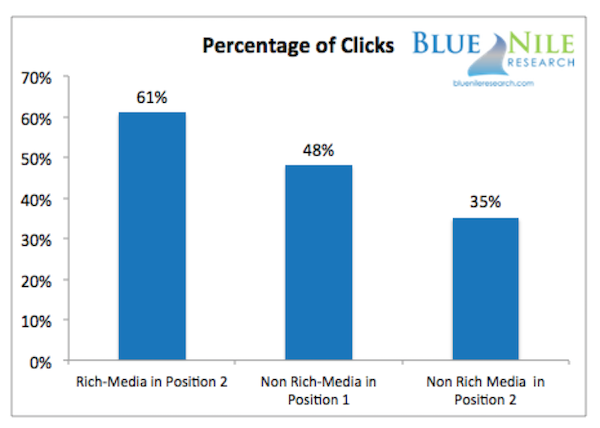Do you have to come first in search anymore?
What position do you want your business to appear in search engine results pages (SERPS)? Number one? All of them? Alright calm down, you megalomaniac.
What position do you want your business to appear in search engine results pages (SERPS)? Number one? All of them? Alright calm down, you megalomaniac.
What position do you want your business to appear in search engine results pages (SERPS)? Number one? All of them? Alright calm down, you megalomaniac.
But then, if you’re not on the first SERP of Google… wait… if you don’t appear in the first three or four results, then you might as well be on page two, three, or 100.
Last year’s study from Advanced Web Ranking confirmed as much… Pages two and three of Google pick up just 5.59% of click-throughs, whereas the number one spot hoovers up 31.24%.

But does it really matter anymore?
Now that search engines are so intuitive, adapting to the individual user the more they search, it’s surely long past the point where optimising a webpage purely to rank number one for your desired search term is an entirely hubristic exercise.
I think I just depressed myself. How about you? Yeah I’m sorry. Okay, let’s try and cheer ourselves up then.
What can we as marketers, business owners, publishers and bloggers do to capture a searcher’s attention?
There’s been a change in search behaviour, largely in thanks to rich media.
Search result snippets (the paragraph of text shown below the URL) are now festooned with star reviews out of five, images, customer ratings, calorie counts… in the example below we even have cooking times for a delicious moussaka.

A study from Blue Nile published last month has shown that results featuring rich media are achieving higher click-throughs then results featured above them. Results that may only consist of a simple, boring blue link.

One test site received, on average, 61% of clicks when enhanced with rich media in position two. This is compared to 48% of clicks to a non-rich media result in position one. A lift of 13%.

With another test ecommerce site, the research discovered that ‘star reviews’ in position two captured 76% of clicks, compared to just 9% for the unenhanced retailer in position one.
This makes sense, we certainly respond positively to visual imagery and bright shiny symbols, and are more likely to click through accordingly. There’s also possibly a trust element here, the more information there is presented within a result the more we’ll consider it an authority on the subject.
This can work the other way too, searchers will also have a better understanding of whether a webpage doesn’t contain relevant information for them, thus theoretically improving the future search experience further.
You can check out more data from the research by clicking the link above, but do bear in mind that they discuss ‘authorship’ as if it’s still a thing, so be wary.
Schema markup gives you all kinds of options to make your search results look all snazzy and relevant to your business or service.
Schema is also the preferred method of markup by Google, Bing and other search engines. Pages with Schema markup also tend to rank four positions higher in search results, according to a study by Searchmetrics.
You can visit the project’s website Schema.org to see all the vocabulary needed to markup your page accordingly. It helps if you have some fundamental knowledge of basic HTML, but it’s nothing too advanced. We also published a handy guide to Schema last year.
Adding rich media markup to your webpage is no guarantee that your page will appear higher up in SERPS, it just might make your link more attractive. If your content is still poor or irrelevant, then it will be judged as such by Google, and searchers will have gone elsewhere long before your link appears.
Markup should not take the place of the SEO techniques you’ve already been practicing, but rather used as a way to signpost your page’s content to help search engines understand it more clearly and pass this information on to a potential visitor.